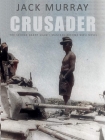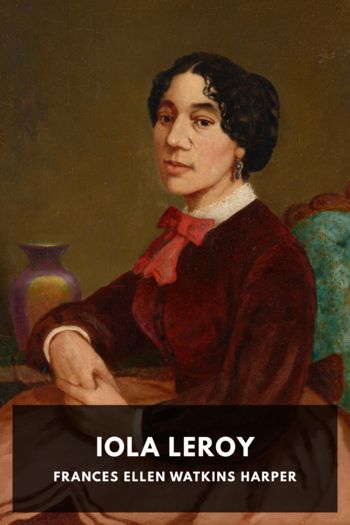Crusader (A Novel of WWII Tank Warfare), Jack Murray [top romance novels .txt] 📗

- Author: Jack Murray
Book online «Crusader (A Novel of WWII Tank Warfare), Jack Murray [top romance novels .txt] 📗». Author Jack Murray
‘Tanks, left,’ said Overath before adding, ‘British.’
Manfred was jolted by this and went immediately to check.
‘They’re burning by the looks of things,’ added Overath.‘Fischer.’
He didn’t need to finish the order, it was apparent that Fischerwas steering towards them.
‘Hurry,’ shouted Overath.
Manfred was confused by what was happening. For once, though,silence was the best policy. They drew to a halt outside one tank. Overath wasimmediately out of the tank followed by Kohler from the hull. Fischer wasgrinning. Again Manfred was awash with curiosity but remained quiet. A minuteor two later, Overath jumped through into the turret clutching his booty. Tinsof fruit and vegetables, some chocolate and a can of beer spilled from hisarms.
‘God save the King,’ said Overath in English. With a wide grin.
-
Around eight in the morning, Manfred heard anti-tank guns in thedistance. The tank crew glanced at one another. Were these their guns orBritish? Sitting in a hot, stinking tank it was impossible for Manfred to know.Manfred glanced towards Kastner.
Kastner shrugged. He didn’t know either.
‘Big help, you are,’ said Manfred.
‘You’re welcome,’ replied Kastner, laughing sourly.
‘They’re ours,’ said Fischer confidently. ‘The British only havetheir two pounder guns and they don’t sound like our eighty-eights. It can onlybe our anti-tank guns.’
Overath chimed in at this point.
‘The British also have their twenty-five pounders, so aside frombeing completely wrong, Fischer’s right. They’re ours. I don’t think there’llbe much left of the Tommies by the time we get there.’
Manfred wasn’t sure whether to be heartened by this ordisappointed. By now, he was up for the fight. He didn’t want to say this, ofcourse. It was better to leave these kind of pronouncements to Fischer. Oncemore, he felt alive in a way that would have been unimaginable a year ago. Allof his senses were activated. Perhaps too much so. The excitement that drovewaves of adrenaline around his body dulled his discomfort with the ever presentsand infiltrating every part of his clothing. But when the battle was over andthe adrenaline wore off, fatigue, pain and the constant irritation of sand onskin took over.
By eight thirty in the morning they had first sight of the tanks.The voice of Lieutenant Basler popped over the airwaves.
‘I see thirty tanks ahead. Three zero tanks. There must be moresomewhere.‘
There weren’t.
The 15th Panzer division and the 21stPanzers drove through them laying waste to the British tanks and splitting theAllied artillery in two. Once again, Manfred felt his luck was holding. Puffs ofwhite smoke mixed with the sand being thrown up by the large number of tanks.Kastner fired off shells as quickly as Manfred could load them.
By mid-morning the rout had finished but the long march followedby the engagement had its own cost.
‘We’re running low on gasoline,’ shouted Fischer.
If their tank was running low on fuel then, in all likelihood, thewhole division was. The order from Neumann-Silkov to disengage came around justbefore midday. The German tanks began to pull back to the eastern end of thevalley. This made sense. Low ammunition and a lack of fuel would jeopardisesuccess in their ultimate objective: the capture of the airfield.
As they pulled back to the eastern end of the valley, Manfredmarvelled at the carnage they’d created. Burnt out tanks, mostly British, werescattered across the plain. It had been a slaughter. He didn’t pay muchattention to the charred bodies littered around the tanks.
To Manfred, it merely proved the superiority of the German warmachine. For the first time, he could see why Fischer had such an air ofconfidence. He didn’t pause to think about why Overath and Kastner seemed lessenthusiastic. Their caution in the face of such overwhelming evidence of Germandominance seemed as unfathomable as it was unpatriotic. Fischer, as ever, wasebullient.
‘My God look at that,’ exclaimed Fischer, like an excitedschoolboy at a funfair. At this moment, Manfred felt he understood the Bavarianbetter. There had always been something of the kid about him. A kid on holiday.Although Manfred, too, felt thrilled, a voice inside him counselled against tooovert a display of this. This would be his way. He got on with his job. Hedisposed of the empty cartridges and checked the gun while the tank joined withthe supply echelon. Kohler, meanwhile, cleaned the bow machine gun thenattended to the antenna.
The next hour was its own type of melee. Refuelling and rearmingfifty or more tanks crowding round the ammunition and petrol trucks nearlycaused a second conflict to break out. Manfred, whose job it was to get thereplacement shells, watched it all with wry amusement. Overath had told him towait. So Manfred waited. Kohler, who was in charge of fuel, did likewise. Theytwo boys sat and shared a cigarette and enjoyed watching the frayed tempers oftheir tired Afrika Korps comrades become increasingly frazzled.
‘It looks like they’re rationing the fuel,’ observed Kohler. Hepointed to a big argument between an enormous sergeant called Muller andanother sergeant handing out the petrol cans.
‘I haven’t seen it like this before,’ said Manfred.
Kohler laughed. But there was a harshness to the laugh. Manfredrealised that he wouldn’t have seen it before because he’d never been in thissituation before. He reddened slightly.
‘It’s always like this,’ said Kohler. ‘Every bloody time.’
Manfred was about to comment on why they didn’t just bring morefuel when a thought struck him. A chilling thought. What if we just don’t haveenough fuel? The sight of the temperature gauge rising amongst his colleaguesbecame something else to him now.
It was a harbinger.
The Afrika Korps was the greatest fighting machine on the planet.Manfred had absolutely certainty about this. In Rommel, they had a leader whohad taken them to victory from France all the way down to North Africa. Yet,without fuel, they were nothing. This was why they were here. It wasn’t Britainwho would defeat the German nation. It was gasoline. Unless they had access to gasoline,Germany could not win the war. Their greatest enemy was also their greatestally.
Oil.
-
‘This doesn’t look good,’ said Kastner eyeing Lieutenant Baslerwalking along the makeshift leaguer picking out tanks.
‘What’s going on?’ asked Manfred, picking up on the direction ofKastner’s gaze.
‘On your feet,’ ordered Overath as he, too, noticed the SSLieutenant heading their way.
Moments





Comments (0)